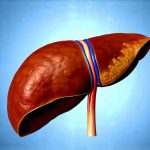The Often Overlooked Link: Liver Health & Emotional Wellbeing
For many, mental wellbeing is considered separate from physical health – an abstract realm influenced by psychology, circumstance, and personal resilience. While these factors are undeniably crucial, increasingly sophisticated research reveals a deeply interwoven connection between our emotional state and the functioning of our internal organs. This isn’t simply about feeling physically unwell impacting mood; it’s about how optimal organ function actively supports mental clarity, emotional regulation, and overall psychological health. One organ often overlooked in these discussions is the liver. Traditionally viewed as a detoxification powerhouse, its role extends far beyond processing toxins – it profoundly influences neurotransmitter balance, hormonal regulation, and even gut health, all of which have significant implications for mood.
The liver’s involvement isn’t merely peripheral; it’s fundamental to maintaining a stable internal environment necessary for emotional equilibrium. Think of the body as an intricate ecosystem. When one part is compromised, ripple effects occur throughout the entire system. A burdened or malfunctioning liver can lead to imbalances that directly affect brain chemistry and function, increasing susceptibility to mood swings, anxiety, depression, and irritability. Understanding this connection allows us to move beyond simply addressing symptoms and towards a more holistic approach to wellbeing – one that prioritizes both mental and physical health as inseparable components of a thriving life.
The Liver’s Multifaceted Role in Mood Regulation
The liver doesn’t operate in isolation. It’s intimately connected to other systems crucial for emotional stability, most notably the gut and hormonal pathways. Its primary function – detoxification – is vital because toxins can directly impact brain function. When the liver struggles to efficiently remove these substances (from food, environment, or internal metabolic processes), they accumulate in the body, potentially leading to inflammation and neuroinflammation – factors heavily implicated in mood disorders. Furthermore, the liver plays a critical role in processing nutrients from our diet, ensuring the building blocks for neurotransmitters – the chemical messengers that regulate mood – are readily available.
The gut-liver axis is another key area of interplay. A healthy gut microbiome supports liver function by reducing the toxic load it must handle. Conversely, a compromised liver can negatively impact gut health, creating a vicious cycle. This bidirectional relationship highlights the importance of addressing both simultaneously for optimal wellbeing. Consider that approximately 70% of our serotonin – often called the “happy hormone” – is produced in the gut. A healthy gut, supported by a functioning liver, contributes to balanced serotonin levels, directly impacting mood regulation.
Finally, the liver is heavily involved in hormonal balance. It metabolizes hormones like cortisol (the stress hormone) and estrogen, influencing their levels in the body. Chronic imbalances in these hormones can significantly impact mood, leading to anxiety, depression, or irritability. A stressed or overburdened liver may struggle to effectively regulate these hormones, exacerbating emotional instability. This complex interplay demonstrates that maintaining liver health isn’t just about physical wellbeing; it’s about creating a stable internal environment conducive to emotional resilience and mental clarity.
Recognizing Signs of Liver Stress & Potential Impact on Mood
Identifying potential signs of liver stress can be the first step towards proactive support. It’s important to note these aren’t diagnostic tools, but indicators that warrant further investigation with a healthcare professional. Often, early symptoms are subtle and easily dismissed, making it crucial to pay attention to your body’s signals. Common indications may include:
- Fatigue, even after adequate sleep
- Digestive issues like bloating, constipation or diarrhea
- Skin problems such as rashes or unexplained itching
- Difficulty concentrating or “brain fog”
- Mood swings, irritability or increased anxiety
- Changes in appetite or food sensitivities.
These symptoms can overlap with many other conditions, so it’s vital not to self-diagnose. However, if you experience a cluster of these symptoms alongside persistent emotional changes, exploring liver health could be beneficial. Early intervention is key. Addressing potential imbalances before they become chronic problems can significantly impact both physical and mental wellbeing.
Dietary Strategies for Liver Support & Mood Enhancement
Diet plays a pivotal role in supporting liver function and consequently, improving mood. The goal isn’t about restrictive dieting but rather embracing foods that nourish the liver and minimize its burden. Here are some practical steps:
- Prioritize whole, unprocessed foods: Focus on fruits, vegetables, lean proteins, and healthy fats. Minimize processed foods, sugary drinks, and excessive amounts of saturated or trans fats.
- Incorporate liver-loving foods: Include cruciferous vegetables (broccoli, cauliflower, kale) which support detoxification pathways. Also, consider adding beets, garlic, turmeric, and green tea to your diet. These offer antioxidant and anti-inflammatory benefits.
- Hydrate adequately: Water is essential for all bodily functions, including liver detoxification. Aim for at least eight glasses of water per day.
Beyond what you eat, how you eat matters too. Chewing food thoroughly aids digestion and reduces the burden on the liver. Practicing mindful eating – paying attention to hunger cues and savoring each bite – can also contribute to better digestive health and overall wellbeing. Remember that dietary changes are most effective when combined with other healthy lifestyle habits like regular exercise and stress management.
The Role of Lifestyle Factors Beyond Diet
While diet is crucial, liver health isn’t solely determined by what we eat. Several lifestyle factors significantly impact its function and, in turn, our emotional state. Stress management is paramount. Chronic stress elevates cortisol levels, placing a significant burden on the liver. Techniques like meditation, yoga, deep breathing exercises, or spending time in nature can help mitigate stress and support liver health.
Regular physical activity is also beneficial. Exercise improves circulation, reduces inflammation, and promotes detoxification. However, avoid overexertion as excessive exercise can sometimes place additional strain on the liver. Finally, minimizing exposure to toxins – from environmental pollutants to harsh chemicals in cleaning products – is essential. Opt for natural alternatives whenever possible and ensure adequate ventilation in your home and workplace. A holistic approach that integrates mindful living, stress reduction techniques, and conscious consumption habits creates a powerful foundation for both liver health and emotional wellbeing.


















